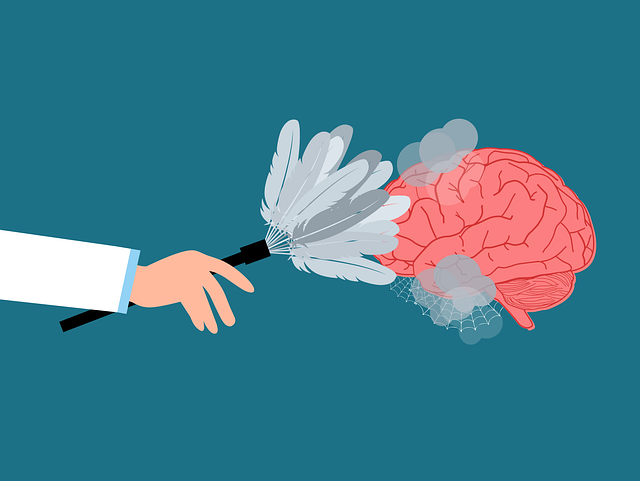Mindfulness meditation, popularized in Longmont through public awareness campaigns, offers a therapeutic path for managing spiritual-religious issues and enhancing mental well-being. Starting with short daily sessions of 10-15 minutes focusing on simple techniques like breath awareness, individuals can cultivate present-moment awareness and acceptance. Advanced practices like body scans and guided visualizations can be incorporated as progress is made. Healthcare providers play a crucial role in fostering an inclusive environment and integrating mental health education to address Longmont's unique spiritual-religious issues therapy landscape.
In today’s fast-paced world, mindfulness meditation offers Longmont residents a path to inner peace and spiritual growth. This practice, rooted in ancient traditions, involves training your mind to focus on the present moment, cultivating awareness, and fostering emotional balance. Our guide delves into three key areas: understanding mindfulness, establishing a practice routine, and overcoming common challenges often faced by those exploring Longmont spiritual-religious issues therapy through meditation.
- Understanding Mindfulness Meditation: Unlocking the Benefits for Longmont Residents
- Getting Started with a Practice Routine: Tips and Techniques for Spiritual Growth
- Overcoming Common Challenges: Navigating Emotional and Mental Barriers in Therapy
Understanding Mindfulness Meditation: Unlocking the Benefits for Longmont Residents

Mindfulness meditation is a practice that has gained immense popularity among Longmont residents, offering a path to inner peace and improved well-being. It involves focusing one’s awareness on the present moment, calmly acknowledging and accepting feelings, thoughts, and bodily sensations. This ancient technique has its roots in Buddhist philosophy but has been adapted and embraced by people from diverse backgrounds seeking stress management and mental clarity.
For Longmont residents dealing with spiritual-religious issues or exploring alternative therapy methods, mindfulness meditation provides a unique approach to self-care. By cultivating present-moment awareness, individuals can develop a deeper understanding of their thoughts and emotions, leading to improved emotional regulation and enhanced overall resilience. Public awareness campaigns focused on mental health have also contributed to the growing popularity of mindfulness as a tool for boosting confidence and promoting better mental health in the community.
Getting Started with a Practice Routine: Tips and Techniques for Spiritual Growth

Starting a mindfulness meditation practice is an incredible journey towards spiritual growth and Longmont spiritual-religious issues therapy. It’s a process that requires dedication and patience, but the benefits are profound. Begin by setting aside just 10-15 minutes each day for your practice—consistency is key. Start with simple techniques like focusing on your breath or observing bodily sensations without judgment. Apps designed for mental health awareness can guide you through these initial steps, offering a structured yet flexible routine.
Remember, mindfulness isn’t about achieving a certain state of calm; it’s about cultivating awareness and acceptance of each moment as it is. Over time, incorporate body scans, guided visualizations, or loving-kindness meditations to enhance your practice. Regularly assess your mental health and adjust your risk assessment for mental health professionals accordingly. As you progress, you may find that mindfulness meditation boosts your confidence and enhances overall well-being.
Overcoming Common Challenges: Navigating Emotional and Mental Barriers in Therapy

Many individuals seeking mindfulness meditation guidance face emotional and mental barriers that can impede their therapy journey. These challenges are especially prevalent in Longmont, where spiritual-religious issues often intertwine with mental health concerns. Overcoming such obstacles requires a nuanced approach, as various factors can contribute to a person’s reluctance to engage fully in the practice. For instance, individuals might struggle with anxiety relief, which is a common barrier, making it hard to sit with their thoughts and emotions during meditation.
In addressing these challenges, Longmont’s healthcare providers play a pivotal role. They should undergo cultural competency training to better understand the diverse backgrounds of their patients. This is crucial for creating an inclusive environment that encourages open dialogue about spiritual-religious beliefs and mental health. Additionally, integrating Mental Health Education Programs Design can empower individuals to manage their well-being holistically, making mindfulness meditation more accessible and effective in treating both physical and psychological ailments.
Mindfulness meditation, as explored in this guide, offers a powerful tool for Longmont residents seeking spiritual growth and emotional well-being. By understanding its core principles and adopting a consistent practice routine, individuals can unlock profound benefits that enhance their overall mental health. Overcoming challenges through techniques tailored to navigate emotional barriers is essential, ensuring that everyone has the chance to thrive. With dedicated effort, mindfulness meditation can revolutionize one’s approach to life, fostering a deeper connection with oneself and one’s surroundings, right here in Longmont.











